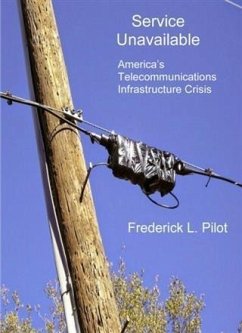In the late 1980s and early 1990s, it became apparent that all telecommunications - voice, data and video - would soon be delivered by the Internet. But instead of an orderly transition to fiber infrastructure to fully support these advanced telecommunications services, a generation was wasted. Had the nation engaged in the proper policymaking, planning and budgeting, it would now be benefitting from ubiquitous fiber infrastructure and reaping the full promise and value of the Internet and its benefits for the economy, education, health care and overall quality of life. Instead, the U.S. struggles with a balkanized patchwork of incomplete, disparate Internet infrastructure the forces many Americans to connect to the Internet using dial up service that was state of the art when Bill Clinton was serving his first term as president.
This book discusses the causes of the crisis including misplaced and excessive reliance on market forces, incremental and wishful thinking and public policies designed to protect the business models of legacy telephone and cable companies. It concludes with a plan for the financing and construction of this infrastructure that is as essential to the twenty-first century as roads and highways were to the twentieth.
Dieser Download kann aus rechtlichen Gründen nur mit Rechnungsadresse in A, B, BG, CY, CZ, D, DK, EW, E, FIN, F, GR, HR, H, IRL, I, LT, L, LR, M, NL, PL, P, R, S, SLO, SK ausgeliefert werden.









